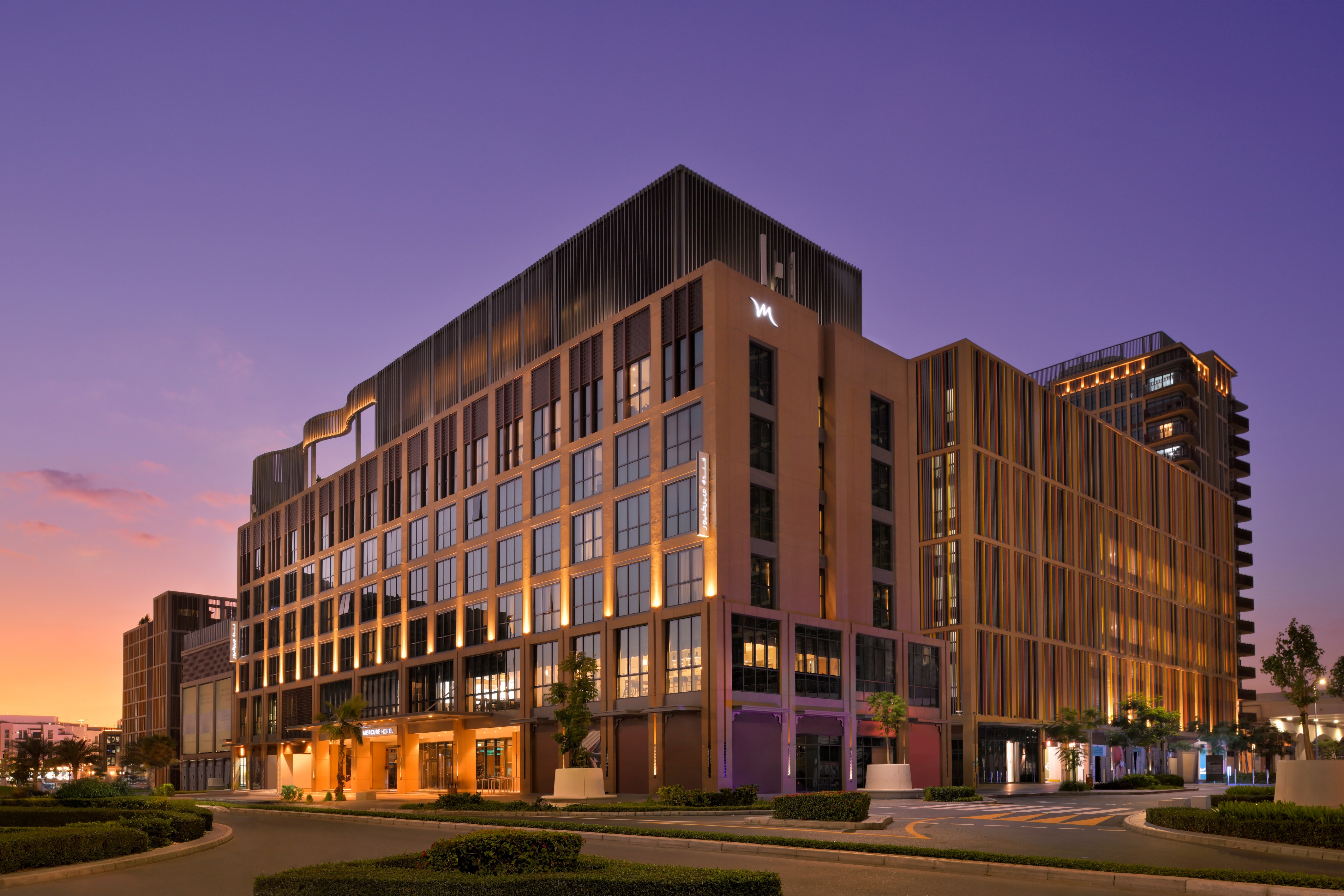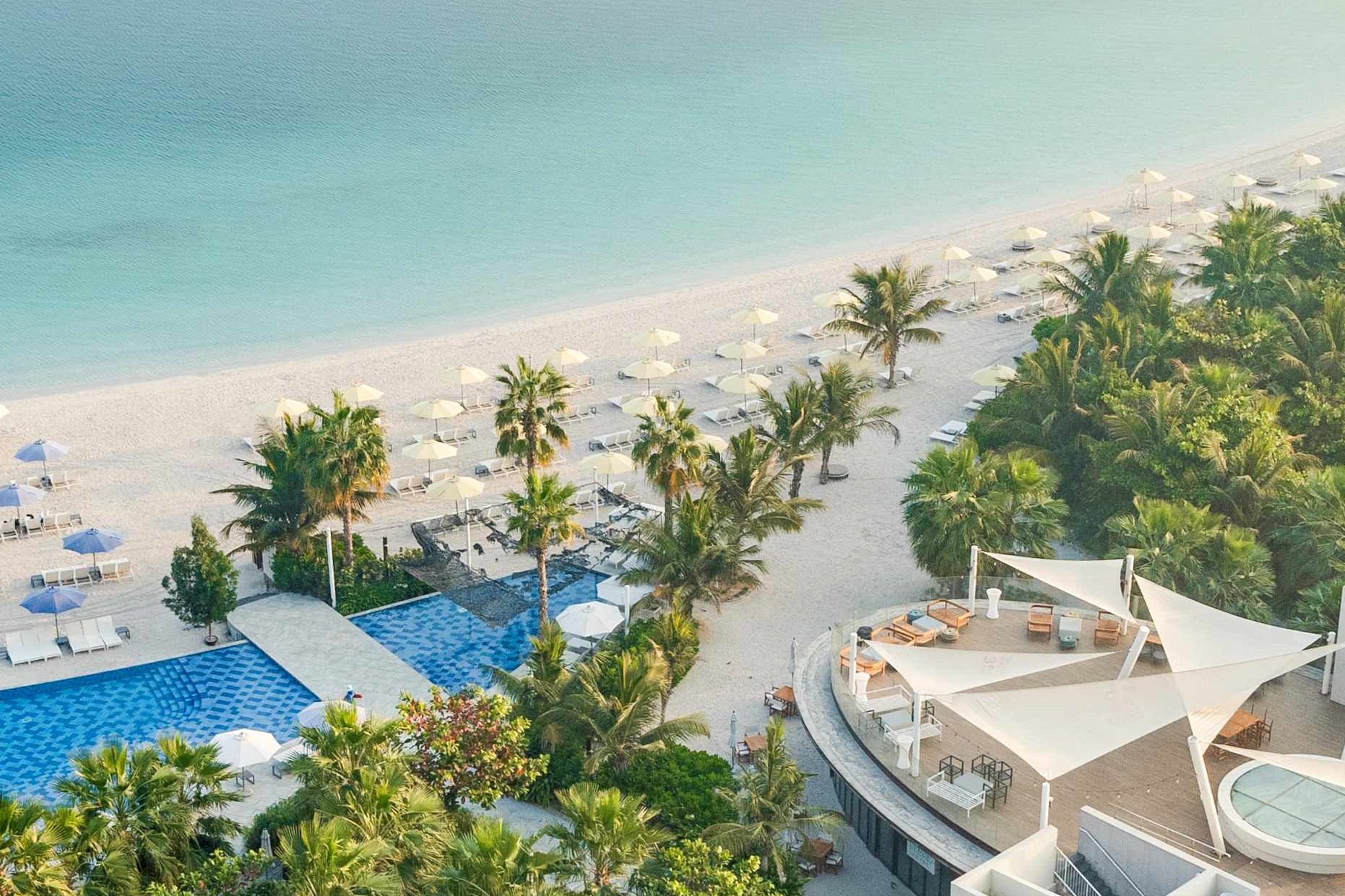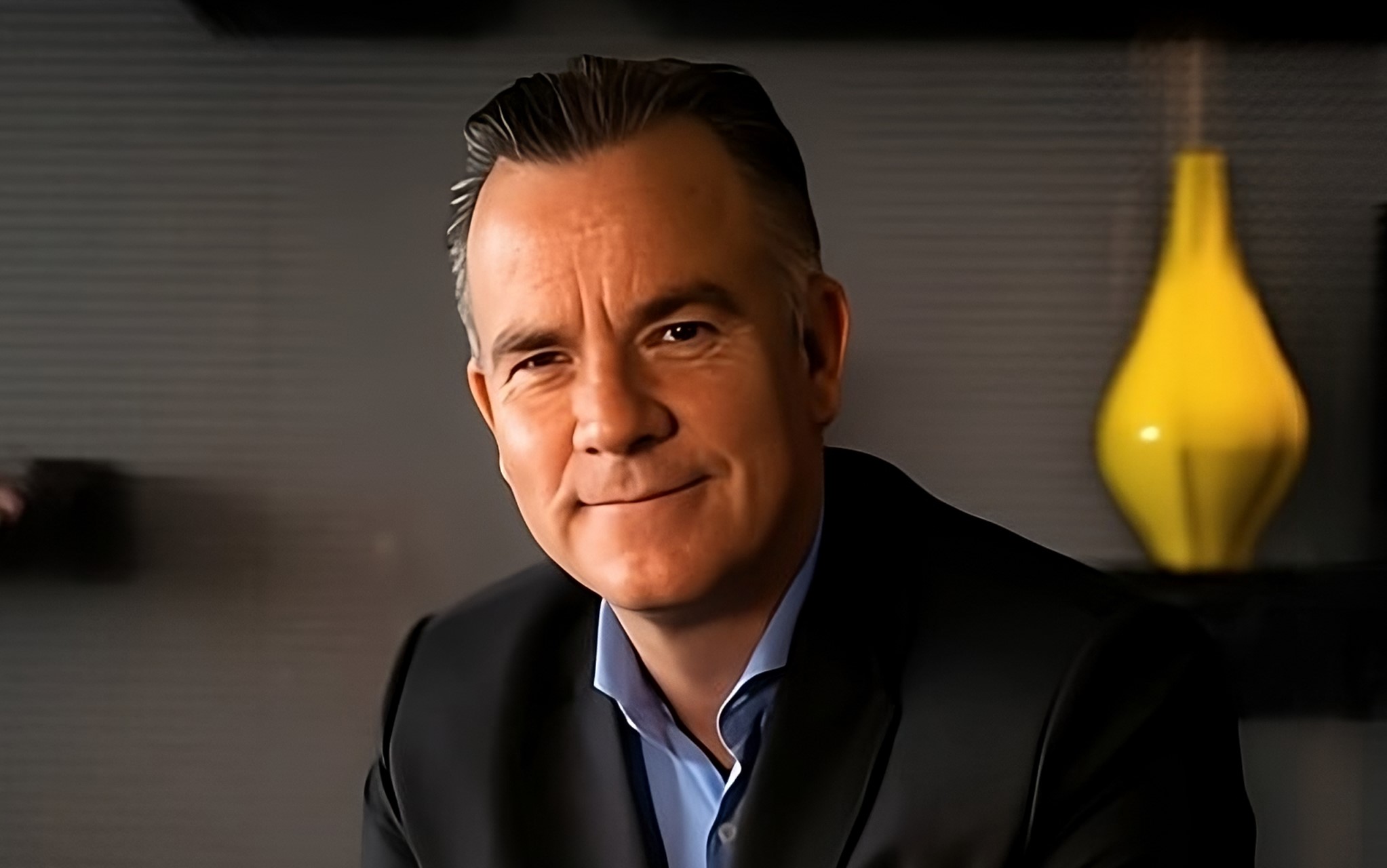DUBAI: Branded residences, once luxury-focused, are experiencing explosive growth-and the Middle East is leading the momentum. One of the world’s top five hospitality trailblazers, is at the forefront of this boom. With the IMEA (India, the Midde East and Africa) region accounting for nearly 50 percent of Accor’s global pipeline in this space, the hospitality group is opening one new branded residence every six weeks worldwide, responding to rising demand for lifestyle-led living.
According to Duncan O’Rourke, CEO, Premium, Midscale, and Economy Division for Middle East, Africa and Asia Pacific at Accor, demand for branded residences and extended stays is surging in destinations like KSA, UAE, Egypt, and Turkey and has expanded beyond luxury, now encompassing premium and midscale segments. “We’re seeing increasing demand from homeowners and investors who want the comforts of home with the service and lifestyle of a hotel. It’s not just about luxury anymore, it’s about lifestyle, security, community, and experience. That’s where branded residences come in, and it’s where Accor has a distinct edge,” O’Rourke tells Trends.
From his vibrant, art-filled office in Dubai Media City, O’Rourke speaks with purpose and passion about what’s driving the brand’s growth—from ESG commitments and community connections to a bold expansion strategy that he says is about “balance and agility – scaling in high-demand segments. Accor’s expansion strategy spans premium, lifestyle, midscale and economy segments, as well as branded residences, and conversion-friendly brands. In O’Rourke’s words, Accor is looking at expanding in segments “that offer strong long-term value and align with evolving market dynamics.”
Growth, growth and more growth
We spoke with O’Rourke on where the growth is happening, what owners and travelers crave today, and why hospitality is increasingly about community, culture, and authentic local experiences and storytelling.
He stressed that Accor’s robust development pipeline and ambitious growth across Saudi that will deliver 44 additional hotels by 2030. “That’s doubling our presence in the market.” He adds, “Saudi is Solid for us. We’re proud of the past 30 years, and we’re even more proud of the future.”
When asked about broader macroeconomic uncertainties triggered by tariffs actions, he remained optimistic: “We have good business in Saudi, we have good business in the Middle East. We don’t really see major discrepancies.”
Accor’s recent MOU with the Saudi Tourism Authority further underscores its commitment to localization, job creation, and development. “We’re the first hotel company to hire a local female general manager for a pre-opening. We are embracing all of those things, not because we’re told to, but because we want to. We totally believe to be very global, but at the same time acting very local in the end.”
The company is also expanding its on-ground footprint, with a second office opening in Riyadh next year.
Footprint and roadmap 2030
Today, Accor operates over 290 properties in the Middle East alone across all its brands, with plans to expand further, that’s over 84K rooms across 26 brands.
Accor’s expansive portfolio of over 45 brands, spanning luxury, premium, midscale, and economy segments, uniquely positions us to identify and capitalize on emerging hospitality hotspots across the MEA region and APAC, says O’Rourke. “This diversity allows us to tailor our offerings to the specific needs of each market, ensuring both cultural relevance and operational excellence.”
Accor’s 5-Year Growth Roadmap focuses on expanding its premium, midscale, and economy footprint in the Middle East, aligning closely with national visions such as Saudi Vision 2030 and UAE 2031 and Egypt Vision 2030. The hospitality group is accelerating branded residences and extended-stay offerings, beyond just luxury, and tapping into hotel conversions to meet the surging demand. With premium brand signings in MEA up 150 percent since 2019 and growing momentum in midscale and economy brands like Mercure, Movenpick and ibis (especially in mature markets across KSA, UAE and Egypt), Accor is strategically targeting high-growth sectors.
Where’s the biggest momentum?
Demand is booming across both luxury and value-driven segments, fueled by rising domestic and regional travel, business travel, and lifestyle-led stays.
According to O’Rourke, Accor is targeting a net unit growth of 4.8 percent, with key expansion focused on the Middle East (UAE, Saudi, Egypt) and Asia-Pacific, particularly India and China. A new joint venture with Indigo positions Accor as a leading hospitality player in India, tapping into the country’s gargantuan middle-class and booming outbound travel market.
India’s strategic aviation growth “the two single largest plane orders in aviation history” is a key enabler, with single-aisle aircraft favoring Accor’s geographic catchment spot (6–7-hour flight range). “This is exactly where we play,” O’Rourke said.
“Saudi Arabia is undoubtedly one of our strongest engines of growth right now,” O’Rourke says highlighting that the UAE remains a powerhouse, particularly in Dubai and Abu Dhabi, which are expanding world-class attractions and infrastructure with most recent announcement of Warner Brothers announcing their entry into Abu Dhabi. “This region is just not stopping.”
What sets Accor apart is its decentralized structure, with multiple regional offices across the Middle East and Africa which gives the group their agility. “Only one month last year did we not face a crisis in my region… yet we achieved our capital market results. Why? Because Accor is extremely well-equipped to reach very fast… Accor is decentralized.” Taking the point further he explains that an office location costs money, but it puts them “closer to the guests, the employees, the owners, and most importantly to the market. And we can react very quickly.”

Strongest demands
Luxury is thriving, lifestyle is on fire, midscale and economy surge and branded residences are booming, that’s how O’Rourke, sees the biggest demand. With powerhouse brands like Raffles, Fairmont, and Sofitel, Accor is firmly positioned in the luxury space, but it’s their lifestyle, midscale and economy, as well as branded residence strategy that’s stealing the spotlight.
While luxury remains resilient — “People with high-end money still travel, even in a financial crisis” — it’s the premium, lifestyle, and branded residence segments that are generating serious momentum, especially in the Middle East.
Accor’s lifestyle division, Ennismore, is now the world’s largest and most innovative lifestyle hospitality player in the industry, merging edgy hotel brands with community-frequented restaurants and beach clubs where locals drive the buzz. Taking the point further, he mentions the success of Gigi Dubai and the partnership with Rikas Group (a Dubai homegrown collection of award-winning destinations.)
“Lifestyle is on fire”, he says, elaborating that it is not just about rooms anymore since 60 percent of the revenue is from food and beverage.
The next big wave? Standalone branded residences — not just attached to multi-structure hotels anymore, but across all segments, from economy to premium and midscale. “Accor is at the forefront,” he said. “Luxury has always been there. Now some very trendy residences coming out onto the lifestyle side”.
And behind it all is Accor’s purpose: “Pioneering the art of responsible hospitality, connecting cultures with heartfelt care.”
ESG for Impact
Accor may not be the world’s biggest hotel group, but when it comes to sustainability, inclusivity, and social impact, Duncan O’Rourke puts it succinctly: “We’re clearly number one.” That leadership, he says, is rooted in strict French regulations in terms of sustainability and economic awareness and European/French mindset that prioritizes ESG – not just as box-ticking exercise, but with real operational impact. “We embrace that. We love that being European (we can) bring those values through.”
“We eliminated single-use plastics in all our hotels. We’ve continuously worked on food waste and buffet waste and work out different ways. We monitor water and electricity,” he said. All owners love it—because it saves money.”
For Accor, sustainability isn’t just an ethical must-have—it’s a bottom-line benefit. Whether it’s reducing 4 percent off electricity bills or incorporating an ESG component into every deal, the group’s model shows that responsible hospitality and financial returns go hand in hand. Yet the vision goes deeper than infrastructure. It’s about people—from guests to local teams to future leaders.“ A lady working in Jakarta took what she learned in our hotel and taught her village how to recycle bottles. That’s not us, that’s her.”
With 590+ eco-certified hotels and a company-wide commitment, from the boardroom to the front desk, Accor is proving that hospitality done right can change communities, groom the young generation, empower people, and deliver RoI. “Hospitality is a wonderful industry,” he affirms.
And in a tech-driven future, O’Rourke insists one thing won’t change: “Hospitality will always need human contact, human talk. Because no one wants a robot welcoming them in Marrakech—they want a wonderful, trained real Moroccan who is from there, with a real story.”

What gives Accor its edge?
It’s the group’s unique blend of global potency and local nuance. With over 45 brands across every market segment, Accor can tailor its offering to any guest or investor profile — while staying agile enough to adapt to local needs. The real differentiator, is its people. “Our Heartist culture and regional academies keep people at the center — we don’t just grow big, we grow responsibly.” For O’Rourke, community impact isn’t a sideline, it’s the soul of the business.
“We’re carrying steadfast in our belief and our values that everybody is equal. We encourage our communities to get involved.”
While many global companies talk about ESG, Accor is embedding it deeply into operations, especially the social impact. From building orphanages to helping trafficked children, O’Rourke shares stories that aren’t typically found in reports. In Jakarta, Accor has long funded and run an orphanage that provides shelter and education for homeless children. “They don’t have to work for Accor,” he says. “Everybody should be given a chance.”
In Vietnam, the company supports Blue Dragon’s Children’s Foundation, an NGO working to eradicate human trafficking in Vietnam. O’Rourke recounts meeting a young man rescued by Blue Dragon who now holds an MBA and helps lead the organization that once saved him. “He said, ‘I dropped everything to give back.’ That’s what this is about.”
This is not an isolated success story. Blue Dragon’s efforts have already made a profound impact in Vietnam, rescuing over 1,600 people from slavery; providing education to over 6,400 children; and offering shelter to more than 1,800 children. The organization has helped nearly 500 youths access job opportunities.
One child from that program recently earned a scholarship to Sydney University. “That’s all you have to say. That kid’s got a massive future,” says O’Rourke.
Beyond community programs, Accor also supports its own people and partners. During the pandemic, when many governments didn’t offer support, Accor stepped in with the Heartist Foundation, a fund created when shareholders agreed to waive dividends to help employees in crisis. In places like Indonesia or Brazil, there’s no safety net, he says. “We look after them… we do things very quietly, but we are very embedded in the communities.”
Even longtime suppliers were supported. One fishmonger, who’d served Accor hotels for 22 years, nearly lost his boat and business. The Heartist Foundation gave him a loan. “We said, ‘Keep your business. We love what you are doing. You support a community’”.
Accor also offers free emergency shelter for women fleeing domestic violence — no questions asked. “If it’s a true case, we don’t charge. We protect.”
AI, Authenticity, and Localization: What’s Next for Hospitality
The future of hospitality is about authenticity, purpose and immersive experiences and Accor is leading the charge by being agile, adaptive, and aligned with tomorrow’s travelers.
According to O’Rourke, who believes the industry is on the cusp of a massive shift, the next five years in travel will be defined by hyper-efficiency powered by AI, and a rising hunger for more local, authentic and meaningful experiences. “AI will become much more pertinent” he said linking this forecast to the way operations will be run, bookings and interactions. Tech has made some parts of the job undeniably faster. “The night audit used to take two people all night. Now? One button. Done in 90 minutes.”
But the real transformation, he says, lies in how tech supports sustainability, design, and local impact. “People are not going to fly in for 2 days. “They stay for another two days, see the country and explore real experiences.”
That bleisure trend is real. “People want local butter, local honey from the nearby farms. This pivot from globalization to localization is reshaping everything from sourcing to supplier networks. “People don’t want anything global; they want anything local. They don’t want globalization. They want localization,” O’Rourke said.
In short, the future of hospitality is high-tech and high-personal touch, but never out of touch. As O’Rourke sums it: “People use the word ‘experience’ flippantly, but it matters more than ever. And they want it to be real.”
What evolving trends will shape the future of hospitality?
The future of hospitality is integrated, immersive, and intentional, and Accor is leading the charge by being bold, adaptive, and aligned with tomorrow’s traveler.
- Lifestyle & Experience-Driven Travel: The future belongs to experiential, lifestyle-centric brands. Through our investment in Ennismore and our focus on curating locally authentic, socially vibrant spaces, we’re meeting this demand head-on. Guests want to connect, not just stay — and our lifestyle portfolio is designed exactly for that.
- Extended Stay & Branded Residences: The surge in blended travel, remote work, and flexible living has sparked strong demand for branded residences and extended stay options, beyond luxury. We’re scaling across the premium and midscale segments, giving owners and guests the flexibility they want with the standards they trust.
- Tech-Led, Human-Centric Hospitality: Digital transformation is not just about automation, it’s about personalization, efficiency, and empowerment. From AI-driven guest journey mapping to frictionless check-in, mobile keys, and tailored offers through ALL.com, we’re combining data and design to elevate every touchpoint.
- Sustainable, Responsible Growth: Tomorrow’s traveler expects purpose and performance. We’re embedding sustainability into every layer of our business, design, sourcing, energy, talent, ensuring that our growth is inclusive, regenerative, and ROI-positive.
- Hyper-Localization & Market Agility: We’re seeing stronger appetite for regionally relevant brands and concepts. Whether it’s desert resorts in Saudi Arabia or eco-retreats in Africa, we’re partnering with local stakeholders and investing in products built for place, not just for scale.
- Evolving Ownership Models & Conversions: As construction costs rise, we’re seeing growing interest in conversion-ready brands like Mercure, Mövenpick, and Handwritten Collection. Accor’s flexible brand architecture, operational depth, and transition support make us the partner of choice in both emerging and mature markets.
- ALL –Loyalty Ecosystem: We’re evolving loyalty into lifestyle. ALL is more than a booking platform — it’s a connected ecosystem of rewards, content, experiences, and partnerships across travel, dining, wellness, and entertainment. This positions us to lead in the experience economy.









